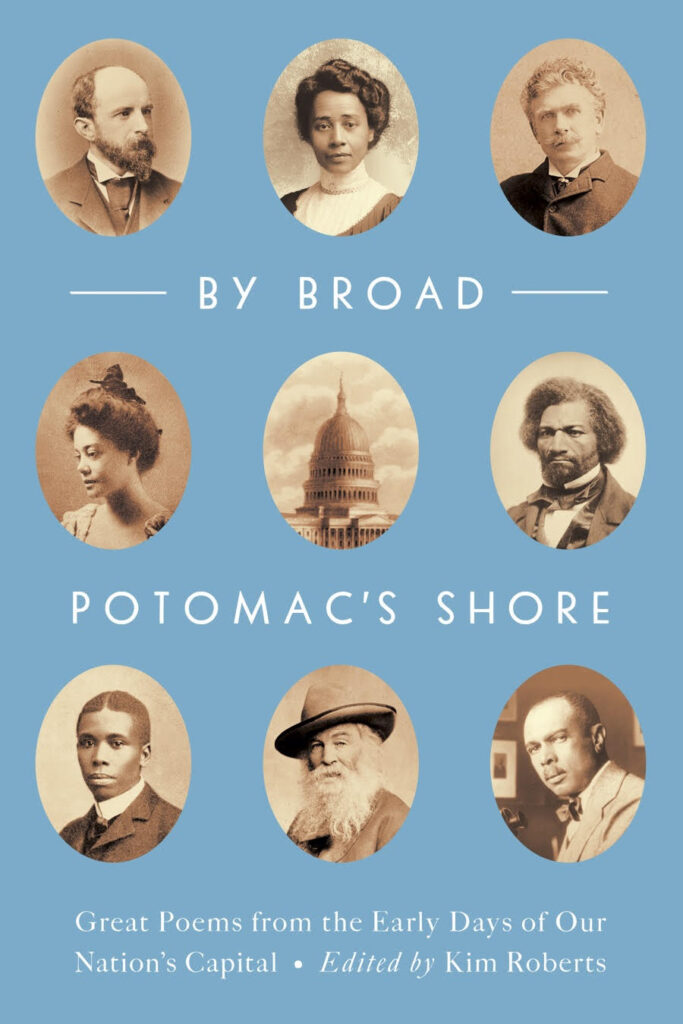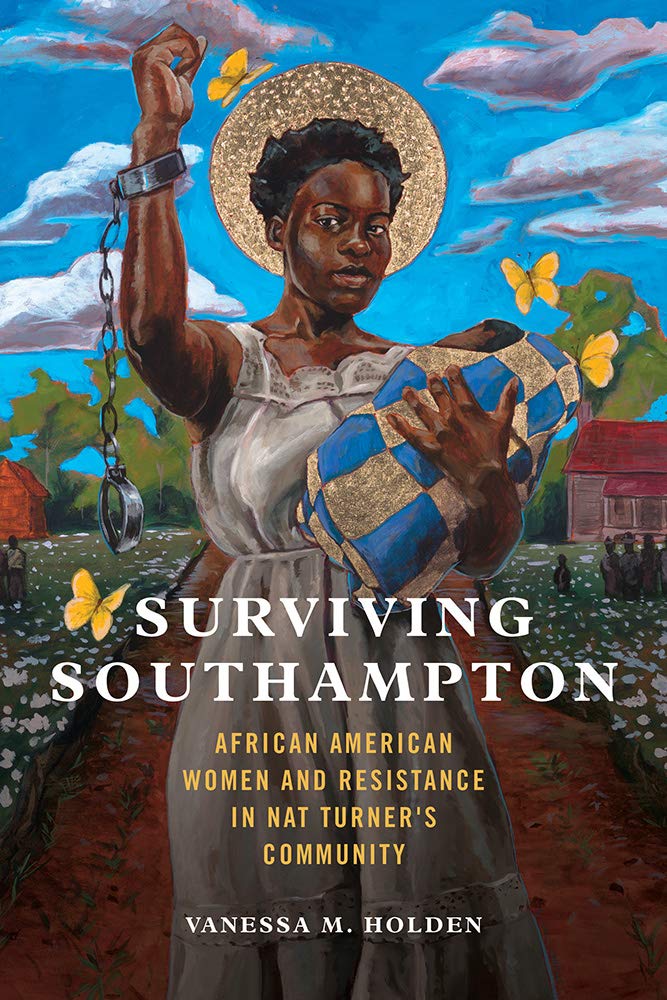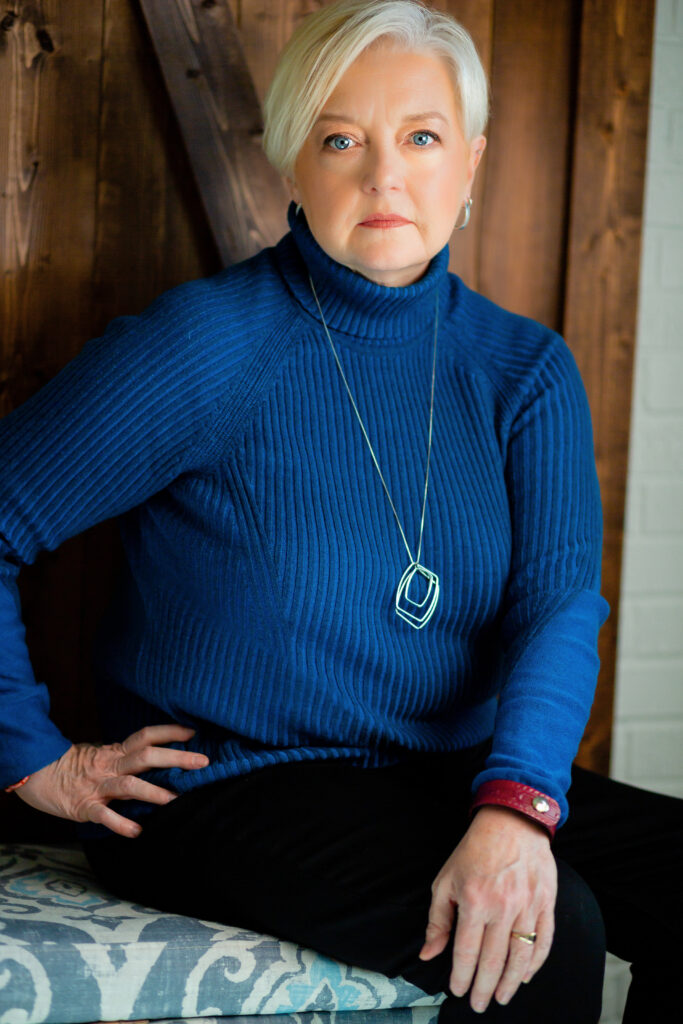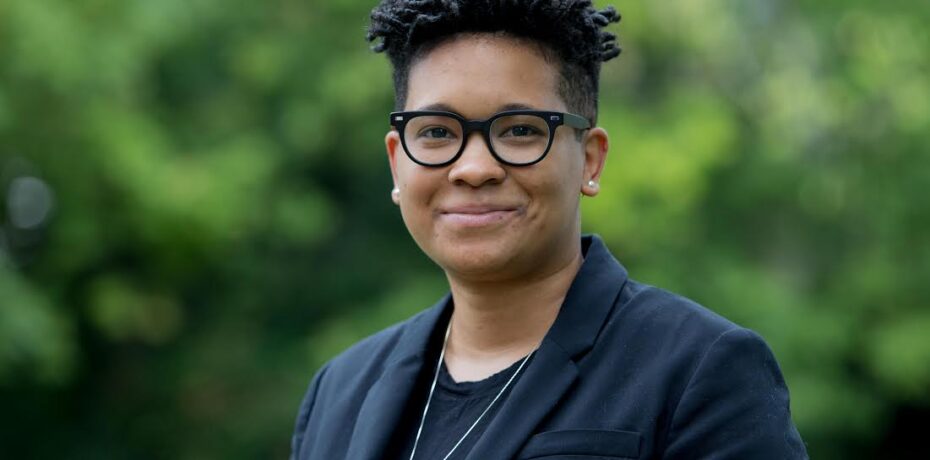The Library of Virginia has announced its 2021 Carole Weinstein Author Series featuring talks by historians, a poet, and a New York Times best-selling author on a variety of fascinating recent books. Programs for 2021 will include:
· February 25, 2021 (Virtual) – Dr. Elizabeth Catte | Pure America: Eugenics and the Making of Modern Virginia
· April 15, 2021 (Virtual) – Kim Roberts | By Broad Potomac’s Shore: Great Poems from the Early Days of Our Nation’s Capital
· June 10, 20201 (In Person/Virtual as pandemic restrictions allow) – Dr. Vanessa M. Holden | Surviving Southampton: African American Women and Resistance in Nat Turner’s Community
· September 14, 2021 (In Person/Virtual as pandemic restrictions allow) – Dr. Karen L. Cox | No Common Ground: Confederate Monuments and the Ongoing Fight for Racial Justice
· November 17, 2021 (In Person/Virtual as pandemic restrictions allow) – New York Times best-selling author Alexis Coe | You Never Forget Your First: A Biography of George Washington
The Carole Weinstein Author Series supports the literary arts by bringing both new and well-known authors to the Library of Virginia. Free and open to the public, the series focuses on Virginia authors and Virginia subjects across all genres.
SCHEDULE | To Register: www.lva.virginia.gov/public/weinstein

Thursday, February 25, 2021 | 6:00–7:30 pm | Virtual
Dr. Elizabeth Catte
Pure America: Eugenics and the Making of Modern Virginia
Dr. Elizabeth Catte, a historian living in Staunton, Virginia, is the author of What You Are Getting Wrong About Appalachia in addition to Pure America. Dr. Catte is the co-founder of Passel, an applied history firm, and an editor-at-large for West Virginia University Press. Her nonfiction writing and commentary has appeared in many outlets, including The Guardian, Boston Review, and McSweeney’s.
About Pure America: Eugenics and the Making of Modern Virginia
Between 1927 and 1979, more than 8,000 people were involuntarily sterilized in five hospitals across the state of Virginia. From this plain and terrible fact springs Elizabeth Catte’s Pure America, a sweeping, unsparing history of eugenics in Virginia, and by extension the United States. Virginia’s 20th-century eugenics program was not the misguided initiative of well-meaning men of the day, writes Catte. It was a manifestation of white supremacy. It was a form of employment insurance. It was a means of controlling “troublesome” women and a philosophy that helped remove poor people from valuable land. It was cruel and it was wrong, and yet today sites where it was practiced like Western State Hospital, in Staunton, Virginia, are rehabilitated as luxury housing, their histories hushed up in the service of capital.

Thursday, April 15, 2021 | 6:00–7:30 pm | Virtual
Kim Roberts
By Broad Potomac’s Shore: Great Poems from the Early Days of Our Nation’s Capital
Kim Roberts is the editor of the anthology By Broad Potomac’s Shore: Great Poems from the Early Days of our Nation’s Capital (University of Virginia Press, 2020), and the author of A Literary Guide to Washington, DC: Walking in the Footsteps of American Writers from Francis Scott Key to Zora Neale Hurston (University of Virginia Press, 2018), and five books of poems, most recently The Scientific Method (WordTech Editions, 2017). Roberts has been the recipient of grants from the National Endowment for the Humanities, HumanitiesDC, and the DC Commission on the Arts, and has been a writer-in-residence at 18 artist colonies. Her poems have been featured in the Wick Poetry Center’s Traveling Stanzas Project, on the Academy of American Poets’ Poem-a-Day Project, and on podcasts sponsored by the Library of Congress and the National Endowment for the Arts.
About By Broad Potomac’s Shore: Great Poems from the Early Days of Our Nation’s Capital
This comprehensive anthology features poems by both well-known and overlooked poets working and living in the capital from the city’s founding in 1800 to 1930. Roberts expertly presents the work of 132 poets, including poems by celebrated DC writers such as Francis Scott Key, Walt Whitman, Frederick Douglass, Paul Laurence Dunbar, Ambrose Bierce, Henry Adams, and James Weldon Johnson, as well as the work of lesser-known poets—especially women, writers of color, and working-class writers. A significant number of the poems are by writers who were born enslaved, such as Fanny Jackson Coppin, T. Thomas Fortune, and John Sella Martin.

Thursday, June 10, 2021 | 6:00–7:30 pm
Virtual/Lecture Hall (TBD based on pandemic restrictions)
Dr. Vanessa M. Holden
Surviving Southampton: African American Women and Resistance in Nat Turner’s Community
Vanessa M. Holden is an assistant professor of history and African American and Africana studies at the University of Kentucky. Dr. Holden’s most recent book, Surviving Southampton: African American Women and Resistance in Nat Turner’s Community (University of Illinois Press), explores the contributions that African American women and children, free and enslaved, made to the Southampton Rebellion of 1831, also called Nat Turner’s Rebellion. Dr. Holden’s work and writing has been published in Slavery and Abolition: A Journal of Slave and Post-Slave Studies, Perspectives on History, Process: A Blog for American History, and The Rumpus. She also blogs for Black Perspectives and The Junto: A Group Blog on Early American History. In addition to her work on enslaved women and slave rebellion, Dr. Holden also co-organizes the Queering Slavery Working Group (#QSWG) with Jessica Marie Johnson (Johns Hopkins University). Her second project, Forming Intimacies: Queer Kinship and Resistance in the Antebellum American Atlantic, will focus on same-gender loving individuals and American slavery. Dr. Holden also serves as a faculty adviser or consultant on a number of public history and digital humanities projects including Freedom on the Move (a digital archive of ads seeking fugitives from slavery); Black Horsemen of the Kentucky Turf (an exhibition chronicling the intersecting histories of African Americans and the horse industry in Kentucky); and a grant project aimed at bringing a driving tour and museum to Southampton County, Virginia, that interprets the Southampton Rebellion. Dr. Holden is deeply committed to diversity, inclusion, and equity work and is the 2019–2020 recipient of the University of Kentucky College of Arts and Sciences Promotion of Diversity and Inclusion Award.
About Surviving Southampton: African American Women and Resistance in Nat Turner’s Community
The 1831 Southampton Rebellion led by Nat Turner involved an entire community. Dr. Vanessa M. Holden rediscovers the women and children, free and enslaved, who lived in Southampton County before, during, and after the revolt. Mapping the region’s multilayered human geography, she draws a fuller picture of the inhabitants, revealing not only their interactions with physical locations but also their social relationships in space and time. Her analysis recasts the Southampton Rebellion as one event that reveals the continuum of practices that sustained resistance and survival among local Black people. Dr. Holden follows how African Americans continued those practices through the rebellion’s immediate aftermath and into the future, showing how Black women and communities raised children who remembered and heeded the lessons absorbed during the calamitous events of 1831. A bold challenge to traditional accounts, Surviving Southampton sheds new light on the places and people surrounding America’s most famous rebellion against slavery.

Tuesday, September 14, 2021 | 6:00–7:30 pm
Lecture Hall (could change based on pandemic restrictions)
Dr. Karen L. Cox
No Common Ground:
Confederate Monuments and the Ongoing Fight for Racial Justice
Karen L. Cox is a professor of history at the University of North Carolina at Charlotte and the founding director of its graduate public history program. In addition to No Common Ground, she is the author of Dixie’s Daughters: The United Daughters of the Confederacy and the Preservation of Confederate Culture (winner of the 2004 Julia Cherry Spruill Prize from the Southern Association for Women Historians for the Best Book in Southern Women’s History), Dreaming of Dixie: How the South Was Created in American Popular Culture(UNC Press, 2011), and Goat Castle: A True Story of Murder, Race, and the Gothic South (UNC Press, October 2017). Dr. Cox has written numerous essays and articles on the subject of southern history and culture. She is the editor of Destination Dixie: Tourism and Southern History (University Press of Florida, 2012), which won the 2013 Allen G. Noble Award for the best edited collection in North American material culture from the Pioneer America Society, and the co-editor of Reassessing the 1930s South (LSU Press, 2018). Dr. Cox has written op-eds for the New York Times, Washington Post, CNN, Time magazine, Publishers Weekly, and the Huffington Post. Her expertise on the American South has led to interviews with the Los Angeles Times, Newsweek, The Daily Beast, Mic, The Atlantic, the Wall Street Journal, Slate (France), the Atlanta-Journal Constitution, the Houston Chronicle, and the Charlotte Observer, as well as many international newspapers. She has also appeared on CNN Newsroom, BBC Newshour, Black Politics Today, the Michael Smerconish Program (Sirius XM), C-SPAN, Canadian Public Broadcasting, Minnesota Public Radio, Georgia Public Radio, and Charlotte Talks with Mike Collins. She frequently gives public talks to both community and academic audiences, and is an OAH Distinguished Lecturer. Cox is originally from Huntington, West Virginia.
About No Common Ground:
Confederate Monuments and the Ongoing Fight for Racial Justice
When it comes to Confederate monuments, there is no common ground. Polarizing debates over their meaning have intensified into legislative maneuvering to preserve the statues, legal battles to remove them, and rowdy crowds taking matters into their own hands. These conflicts have raged for well over a century—but they’ve never been as intense as they are today. In this eye-opening narrative of the efforts to raise, preserve, protest, and remove Confederate monuments, Karen L. Cox depicts what these statues meant to those who erected them and how a movement arose to force a reckoning. She lucidly shows the forces that drove white southerners to construct beacons of white supremacy, as well as the ways that anti-monument sentiment, largely stifled during the Jim Crow era, returned with the civil rights movement and gathered momentum in the decades after the Voting Rights Act of 1965. Monument defenders responded with gerrymandering and “heritage” laws intended to block efforts to remove these statues, but hard as they worked to preserve the Lost Cause vision of southern history, civil rights activists, Black elected officials, and movements of ordinary people fought harder to take the story back. Timely, accessible, and essential, No Common Ground is the story of the seemingly invincible stone sentinels that are just beginning to fall from their pedestals.
Wednesday, November 17, 2021 | 6:00–7:30 pm
Lecture Hall (could change based on pandemic restrictions)
Alexis Coe
You Never Forget Your First: A Biography of George Washington
Alexis Coe is a historian and the author of the narrative history book Alice + Freda Forever: A Murder in Memphis (and a consultant on the movie adaptation). Her second book, the New York Times best seller You Never Forget Your First: A Biography of George Washington, cracked open the scholarship around George Washington and was named as one of Time magazine’s 100 Books to Read. Coe is a consulting producer on Doris Kearns Goodwin’s three-part George Washington series on the History Channel. She is the host of the podcast No Man’s Land and co-hosted the podcast Presidents Are People Too! Coe has served as a project-based oral historian at the Brooklyn Historical Society and as a research curator in the Exhibitions Department at the New York Public Library. She curated the ACLU’s 100 Years exhibition and was the assistant curator of the New York Public Library’s centennial exhibition in Bryant Park. She has appeared on CNN, the History Channel, C-SPAN, and CBS, and lectured at Columbia, West Point, Georgetown, Sarah Lawrence, New York University, the New School, the University of San Francisco, and other colleges. Coe has given talks sponsored by Hulu, Chanel, and Madewell. Her work has been included in The Best American Essays (about living a feminist Walden in California) and The Best American Travel Essays (the New Republic sent her on a seven-day, multi-state wagon ride to reenact the Gold Rush), and her essay on how marriage helps male professors get ahead was one of The Atlantic‘s Great Debates of the Year in 2013. She has contributed to the New Yorker, the New York Times, the New Republic, the Paris Review, Elle, and many others.
About You Never Forget Your First: A Biography of George Washington
In this instant New York Times best seller, Alexis Coe takes a closer look at our first—and finds he is not quite the man we remember. Young George Washington was raised by a struggling single mother, demanded military promotions, caused an international incident, and never backed down—even when his dysentery got so bad he had to ride with a cushion on his saddle. But after he married Martha, everything changed. Washington became the kind of man who named his dog Sweetlips and hated to leave home. He took up arms against the British only when there was no other way, though he lost more battles than he won. After an unlikely victory in the Revolutionary War cast him as the nation’s hero, he was desperate to retire, but the founders pressured him into the presidency—twice. When he retired years later, no one talked him out of it. He left the highest office heartbroken over the partisan nightmare his backstabbing cabinet had created. Back on his plantation, the man who fought for liberty confronted his greatest hypocrisy—what to do with the men, women, and children he owned—before he succumbed to death. With irresistible style and warm humor, You Never Forget Your First combines rigorous research and lively storytelling that will have readers—including those who thought presidential biographies were just for dads—inhaling every word.

